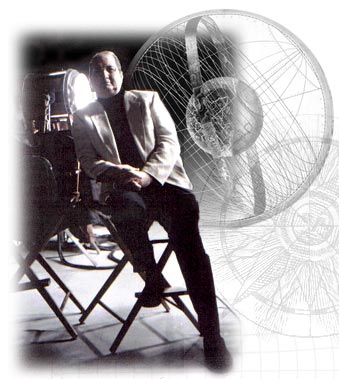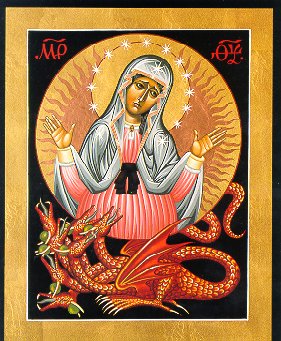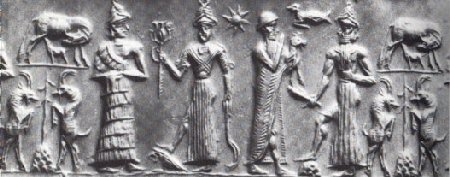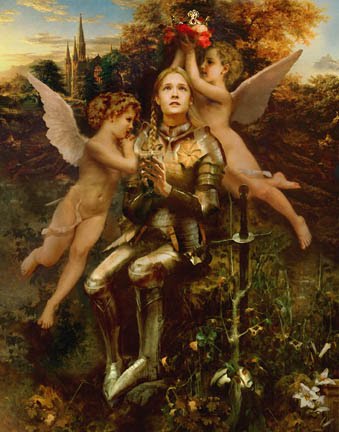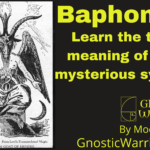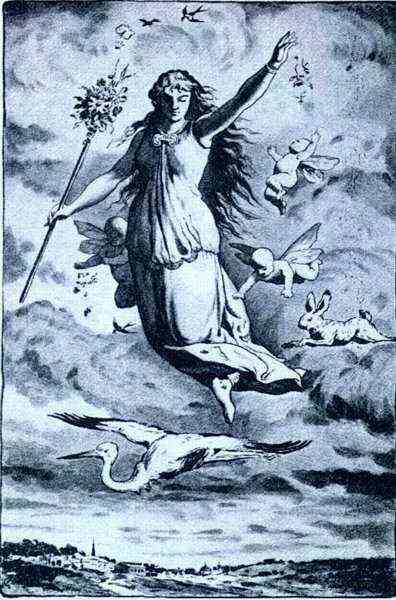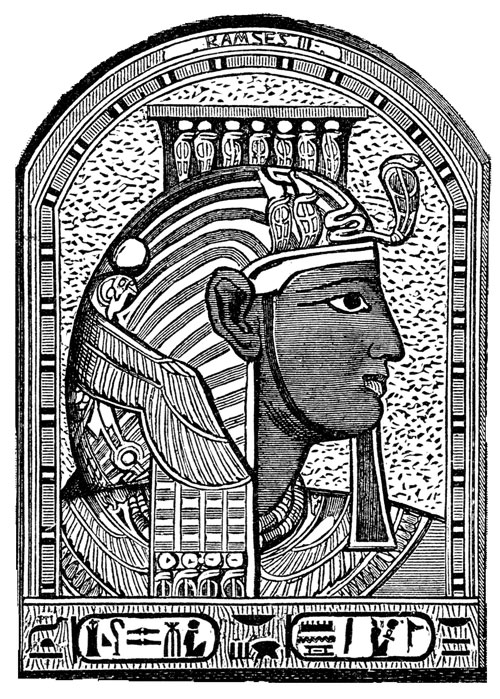In the Hebrew language and the Old Testament, the meaning of “El” is the noun singular form of the word God, and “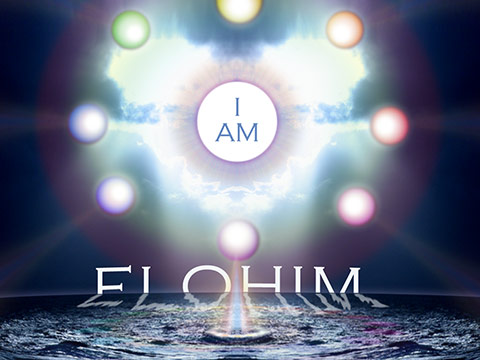 Elohim” is the plural version “gods.” The name Elohim appears 33 times in the story of creation in the opening chapters of Genesis. According to Genesis 5:1b; Elohim made man in His likeness.
Elohim” is the plural version “gods.” The name Elohim appears 33 times in the story of creation in the opening chapters of Genesis. According to Genesis 5:1b; Elohim made man in His likeness.
In 1:26; Elohim speaks of making man in our image and likeness, whereas in 1:27; Elohim creates man in His image. In the book of Jonah, the name Yahweh (Lord) is mentioned 22 times, Elohim or El (God) 13 times, and the combination Lord God four times, for a total of 39 references.
“Thou shalt have no other Elohim but Me” [Exod. xx. 3]. “Yahweh, He is the Elohim, Yahweh, He is Yahweh the Elohim” [1 Kings xviii. 39]. “They are no Elohim, but the work of men’s hands” [2 Kings xix. 18]. Isaiah 44:6; “Thus saith YHWH the King of Israel, and his redeemer YHWH of hosts; I am the first, and I am the last; and beside me there is no El.”
The names Elohim, Yahweh, and YHWH are not an actual God-man, but a God planet that is the largest planet in our solar system and that we call today, Jupiter. Elohim was the name for Jupiter from the Babylonians and Canaanites. Yahweh was the new name given by Moses under the tribe of the Israelites. The Hebrew language is derived from the Phoenicians and their book is called the Old Testament. It is a creation of the High Priest Phoenician Bards who are known as the Levites such as Moses, who had declared in his address to the Israelites in Deuteronomy, ch. iv. C. “Hear, O Israel, Jehovah, our Elohim is one Jehovah.”
This passage from Moses let’s us know, who we also know as Yahweh and Adonai and who is also Elohim, are all one in the same. It was from this point forward that there would be only one Jehovah, and the god named Elohim would no longer exist.
Jehovah is a Latinization of the Hebrew יְהֹוָה, a vocalization of the Tetragrammaton יהוה (YHWH); the name of the Hebrew national god of the Iron Age kingdoms of Israel and Judah in the Hebrew Bible. YHWH is also been transcribed as “Yehowah” or “Yahweh“, but the Rabbinic Judaism teaches that the Tetragrammaton (י-ה-ו-ה), YHWH, is the ineffable and actual name of God, and as such is not read aloud in the Shema, but is traditionally replaced with אדני, Adonai (“Lord”).
The royal court and temple of Israel had promoted Yahweh as God of the entire cosmos, possessing all the positive qualities previously attributed to the other gods and goddesses. In modern Judaism, the name Yahweh is replaced with the word Adonai, meaning Lord. Most scholars believe “Jehovah” to be a late (ca. 1100 CE) hybrid form, derived by combining the Latin letters JHVH with the vowels of Adonai. Adonai — often translated as “LORD”, it is read in place of YHWH.
After the tower of Babylon and confusion of tongues, the name of God of the Babylonians; “Elohim” you will find around the world in various spellings such as:
The following are forms, substantive and in combination, of certain names of the Supreme Being—the primary forms in each case being, so far as known, not yet determined.
(1.) Iene, Iehu, Ieuo, Iaou, Iao, Aoh, Ao, Ai, Oa, Iah, la. Ie, Io, In, low, Ion, Iaore, Iehovah, love, En, Ue, Ya. Yao, Ha, He, Ho, Hn, Bud-Hu, Brum-Hn, Iu-Pater, Ia-Pheth, Ia-Petns, Zeus, Zeuth, Deus, Deu, Ia-chus, Ba-Ia-chus or Bacchus, AlTJe, Elel-Eu, Elel-Eus, Io-BeU Adon-Ai, Elo-Ah, AU-Ah.
(2.) Al, El, E, 01, UL Bal, Bel, Baal, Beel, Bfl, Bol, Bui. Pul, Abel, Abello, Apollo, Ath-EL Sal, Sel, Sol, Sul, Al-Eu, Elel-Eu, ElelEus, Eloah, Allah, Helios, (Elohim) (Atim, Elim).
(3.) God, Od, Gott, Goth, Gothin, Cot, Cotta, Khoda, Chudai. Gaid (Gaid-El), Gad, Ad, Adad, Cuth, Cush, Gath, Ath, Aith, Guth, Gud, Gude, Gudan, Guodan, Wodan, Woden, Odin, (Gododin), Edin, Eden, Edon, Ed, Weden, Wedne, Aden, Gaden, Dan, Titan, Danaus, Dianus^ Ianus, Adonai, Adonis, Poseidon, Othin, Oth, Ouvin, On, Oud, Weda, Gautama, Pagod, Bod, Bud. Buth, Budh, Budha, Budhu, Boodh, Bhood, Buddin, Boutta, Poota, Poth, Pot, Fo, Foo, Fohi.
In the last section is included the name of Titan, so renowned in ancient tradition, and which would be pronounced Tetan or Dedan, evidently meaning De-Dan = the God Dan, Eden, or Odin. Teutones is no doubt a form of the same expression— denoting the worshippers of the Deu or God Odin. Edon, it may be remarked, forms part of Caledonia.
There were other forms and combinations of these names of the Supreme Being.

Moe is the founder of GnosticWarrior.com. He is a father, husband, author, martial arts black belt, and an expert in Gnosticism, the occult, and esotericism.

